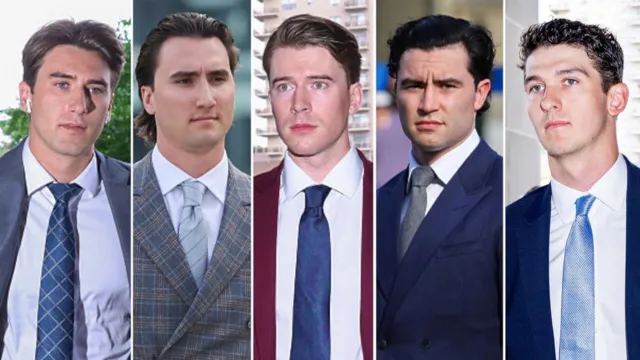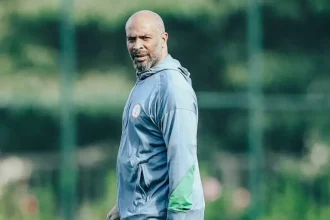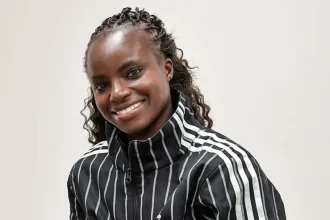Five former Canadian junior ice hockey players have been acquitted of sexual assault allegations by an Ontario judge, concluding a widely followed legal case that has sparked national debate in Canada.
In a courtroom packed with observers on Thursday, Justice Maria Carroccia delivered her decision after an exhaustive review of the testimony and evidence presented during the eight-week trial.
The judge found all five accused not guilty.
The players, Michael McLeod, Dillon Dube, Cal Foote, Alex Formenton, and Carter Hart, were members of Canada’s World Junior hockey team and playing professionally in the National Hockey League at the time the allegations surfaced. One of them was playing in Europe.
They were accused of sexually assaulting a woman identified only as EM in a hotel room in London, Ontario, following a Hockey Canada gala in 2018.
Justice Carroccia ruled that the prosecution had not met the required burden of proof, citing concerns over the reliability of EM’s testimony.
“I do not find [EM’s] evidence credible or reliable,” the judge said, emphasizing that “the Crown cannot meet its onus on any of the counts.”
Following the verdict, the NHL issued a statement declaring the five players remain “ineligible” to participate in league activities pending a review of the court’s findings.
The accused players did not speak to the media, but their lawyers issued statements on their behalf. David Humphrey, representing Michael McLeod, noted his client’s relief after years of public scrutiny.
“For years, public perception was shaped by a one-sided narrative,” Humphrey said. He added that the impact on McLeod’s personal and professional life “has been significant.”
Meanwhile, EM’s legal representative, Karen Bellehumeur, said the complainant watched the ruling virtually and was deeply saddened by the outcome.
“When a person summons the courage to disclose their story, the worst possible outcome is to feel disbelieved,” Bellehumeur stated.
At the heart of the trial was the issue of consent. EM, who was 20 at the time, initially agreed to consensual sex with McLeod after meeting the players at a bar.
However, she testified that she did not consent to what occurred afterward when other players entered the room and engaged in further sexual activity with her. She described being intoxicated and fearful during the encounter.
The defence maintained that EM had expressed willingness to engage sexually with all five players. They argued the players believed she had consented to each act, with one player, Carter Hart, taking the stand to testify in his own defence.
The trial drew major public interest. On the day of the verdict, the courtroom overflowed, prompting staff to open two additional rooms to accommodate attendees. Some of the accused showed visible signs of relief as the judge announced her decision.
In her explanation, Justice Carroccia noted inconsistencies in EM’s account, such as who paid for drinks that evening, and said her testimony reflected “an uncertain memory” that clashed with other evidence.
The judge also cited contradictions in statements EM gave to police and Hockey Canada, which had reached a C$3.5 million ($2.5m; £1.9m) out-of-court settlement with her in 2022.
Two videos recorded during the encounter, including one taken without EM’s knowledge, were presented at trial.
While the recordings do not legally constitute proof of consent under Canadian law, the judge said they depicted EM “speaking normally, smiling,” and she “did not appear to be in distress.”
This, according to the judge, contradicted the Crown’s claim that EM stayed in the room due to fear.
The Crown, led by prosecutor Meaghan Cunningham, has not announced whether an appeal will be filed. She said her team would thoroughly examine the judge’s ruling.
“We have received dozens of messages from people across Canada and abroad” supporting EM, Cunningham said. She also emphasized that, “A successful prosecution is not measured solely by whether there are guilty verdicts at the end. The Crown’s goal throughout this proceeding has been to see a fair trial, a trial that is fair to the men charged, and one that is also fair to EM.”
The prosecution had argued that EM’s testimony was trustworthy, saying “intoxication does not equal unreliability,” and that minor inconsistencies were expected under the circumstances.
They highlighted that EM had gone to the police in 2018, years before taking legal action against Hockey Canada, and had no motive to fabricate her story.
They also presented text messages they claimed showed McLeod orchestrated the situation by inviting teammates and that the group attempted to “get their story straight” afterward by aligning on the claim that EM had consented.
Justice Carroccia rejected that interpretation, stating the players were simply “recounting their recollections.”
The defence team also relied on the accounts of two players present at the hotel who were not charged. They testified that EM was “vocal” about her sexual preferences, bolstering the defence’s claim that the woman had been a willing participant.
Outside the courthouse, protestors gathered in solidarity with EM throughout the trial. One demonstrator, Fabienne Haller, told the BBC she was heartbroken by the verdict.
“I feel devastated,” she said, expressing concern that the outcome “will influence the next decade, and even more, of how sexual assault cases are going to be dealt with” in Canada.







